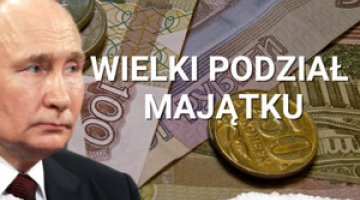Szijjártó in Moscow: Hungary maintains its energy cooperation with Russia
Hungary’s foreign and trade minister Péter Szijjártó met Aleksander Novak, Russia’s deputy prime minister in charge of energy, and Rosatom head Alexei Likhachev in Moscow on 11 April. He stressed that despite the expected criticism from Western partners, the visit would contribute to Hungary’s energy security by maintaining the stable supply of raw materials from Russia. He also reported that a preliminary agreement had been reached on modifying the contracts to expand the Paks Nuclear Power Plant (NPP); based on the version from 2014. Rosatom should construct two units with a total capacity of 2400 MW. The scope of the modifications was not disclosed: in its comments on the meeting, the Russian side limited itself to a message about “discussing further steps” in the context of the facility’s construction.
According to Szijjártó, it was also agreed during the visit that Hungary will still be able to buy a larger volume of natural gas from Russia than the long-term contract provides for: the current 15-year contract signed in 2021 provides for an annual supply of 4.5 bcm of natural gas (see ‘New Hungarian-Russian gas agreement’). The extra-contractual deliveries will come via the TurkStream gas pipeline, the security of which has also been the subject of bilateral talks. The actual volume to be transported remains unknown at the moment, although Hungary bought an additional 0.7 bcm in 2022. The Hungarian foreign minister also announced that it was decided during the meeting to extend last year’s agreement, based on which Budapest can pay off part of its gas debts with a delay, in case of high prices on the markets. In his speech, Szijjártó revealed that if gas rises to more than €150 per MWh (in the contract, the price is indexed to the Dutch TTF exchange), repayments will be postponed. Both of these provisions, regarding the additional volumes to be delivered and the clause on possible deferral of payments, are currently being ‘considered’ by Gazprom, which has not yet made a decision on the issue.
Szijjártó’s visit to Moscow coincided with the announcement by the United States on 12 April that it was imposing sanctions on the Budapest-based International Investment Bank, which will cover two Russians and one Hungarian citizen. The entity, which has been operating in Hungary since 2019, has allegedly been used to finance Russian espionage activities in Europe, according to the US and some Hungarian sources. On the same day, the US Treasury Department also announced it was extending restrictions to companies which cooperate with Rosatom but are not directly involved in the Hungarian power plant project; these include Rusatom Overseas JSC, which is responsible for the corporation’s hydrogen projects.
Commentary
- Szijjártó’s visit to Moscow, his third since Russia’s invasion of Ukraine, confirms that Hungary is continuing to break away from the West’s policy of diplomatically isolating the Kremlin. Moreover, the day after his return, Szijjártó met Syarhei Alejnik, Belarus’ foreign minister, in Budapest. The event was a ‘return fixture’ after the Hungarian minister’s visit to Minsk in February; that was the first meeting between an EU politician of this level and a representative of Alyaksandr Lukashenka’s regime after his suppression of the 2020 protests. These meetings confirm that Budapest still seems determined to keep up its cooperation with Russia (and Belarus) – or to maintain as much of it as possible under the current circumstances (including EU sanctions). Hungary is also the only EU country in the region which, despite its declarations and talks on diversification of supplies, has kept its imports of hydrocarbons from Russia at the current level. As of 24 February last year, Budapest has not concluded any new contracts for alternative gas and oil supplies, although the government says a contract with Azerbaijan to supply about 2 bcm of gas (about 20% of Hungary’s annual consumption) is being finalised. After Finland abandoned its project to build a nuclear power plant in cooperation with Rosatom after the Russian invasion of Ukraine, Hungary also remains the only EU country where a Russian company is scheduled to build new nuclear units.
- For domestic consumption, Szijjártó attempted to present his visit to Moscow as a negotiating success which will guarantee Hungary’s energy security, even though none of the measures announced marked any real breakthrough in this area. The cool approach of the Russian side is noteworthy here; they did not definitively confirm any of the statements Szijjártó made. At most, the event seems merely to have maintained the status quo; Hungary remains dependent on Russian supplies despite the precarity of the supply routes, including through Ukraine (due to the hostilities), and the subordination of Russian hydrocarbon supplies to political calculations. The message is meant to justify the price Budapest is paying for maintaining its close ties to Moscow – including its increasingly chilly relations with its allies in the EU and NATO.
- For Russia, Szijjártó’s visit is primarily about optics, as it demonstrates the lack of unity within the EU and the merely limited effectiveness of the West’s policy of diplomatically isolating Moscow. Maintaining cooperation with Hungary undermines the unity of the EU’s approach to the Kremlin; among other things, it most likely guarantees that Budapest will inhibit or obstruct any work on further sanctions packages which might strike at energy in the broader sphere (such as cooperation with Rosatom, or imports of pipeline gas or LNG). In addition, by making concessions to its Hungarian partner (the potential extension of the clause allowing gas payments to be deferred, or modifying the Paks-2 agreement), Moscow shows that states which do not support Ukraine can count on concrete benefits in their economic relations with the Russian Federation.
- Hungary’s policy of staying close to Russia is drawing increasingly sharp criticism from the United States. After Budapest ignored a series of warnings, Washington imposed sanctions on the International Investment Bank; according to a Treasury Department release, its location in Budapest enables Russia to “expand its intelligence presence in Europe, [including by] exerting influence in Central Europe and the Western Balkans”. In turn, Washington’s restrictions on nuclear companies could further complicate the expansion of the Paks NPP. Although Rosatom has not been directly affected by the restrictions, the Americans appear to be sending a warning to anyone interested in further nuclear cooperation with the Russians.
- The gas arrangements which Szijjártó presented have not been definitively confirmed by the Russian side; Gazprom has merely said it will “consider” them. However, the fact that similar agreements on volume increases were introduced last year, and some of the fees could be deferred again if prices rise, suggests that it is highly likely they will be re-implemented. Szijjártó did not say what additional volume Gazprom is expected to deliver this year, but it can be assumed that it will be of a similar size to last year (0.7 bcm). Nevertheless, the fact that the concern is “considering” the issue of extra-contractual gas transmission allows Russia side to keep making any additional deliveries dependent on Budapest maintaining the “desirable” policy.
- In the context of the option discussed to defer repayment in case of high gas prices (€150/MWh), it is important to note the political aspect of this mechanism. Although gas currently costs €43/MWh on the open exchange, if the crisis intensifies next winter, resorting to this option could bring the Hungarian budget some ad hoc relief. Such a price spike could, for example, be caused by a drop in gas supplies in Europe if Russia reduces supplies to the EU via pipelines running through Ukraine. This would represent a stepping-up of the Russian tactic of using gas transmission as a tool for blackmailing other EU countries.
- If the contracts for the construction and financing of the Paks NPP expansion were to be renegotiated, that would mean another delay in the project (for procedural reasons, among others), adding more and more question marks to its implementation. The full range of the changes to the bilateral contracts was not cited: it was merely announced that they were necessary for both technical and financial reasons. Significantly, this announcement was made only by the Hungarian side: Rosatom did not report any need to renegotiate the agreements. This suggests that there is a lack of bilateral agreement on the issue. It is worth noting that any changes to the contract will have to be approved by the European Commission; this could potentially open up another area of dispute between the Hungarian government and the EC, and delay the investment further. Budapest is now counting on increasing France’s participation in the Paks NPP expansion: this was discussed during Viktor Orbán and Péter Szijjártó’s visit to Paris in March. One issue at stake is the control systems for the plant, which are to be supplied by the Franco-German Framatome-Siemens consortium, but Berlin has so far not given the approval necessary for this. The press has even speculated that the project with Rosatom could possibly be abandoned, and building the new units with the French partner instead. It seems, however, that Hungary is still counting on seeing the project through in cooperation with Russia, albeit in a slightly modified form.





